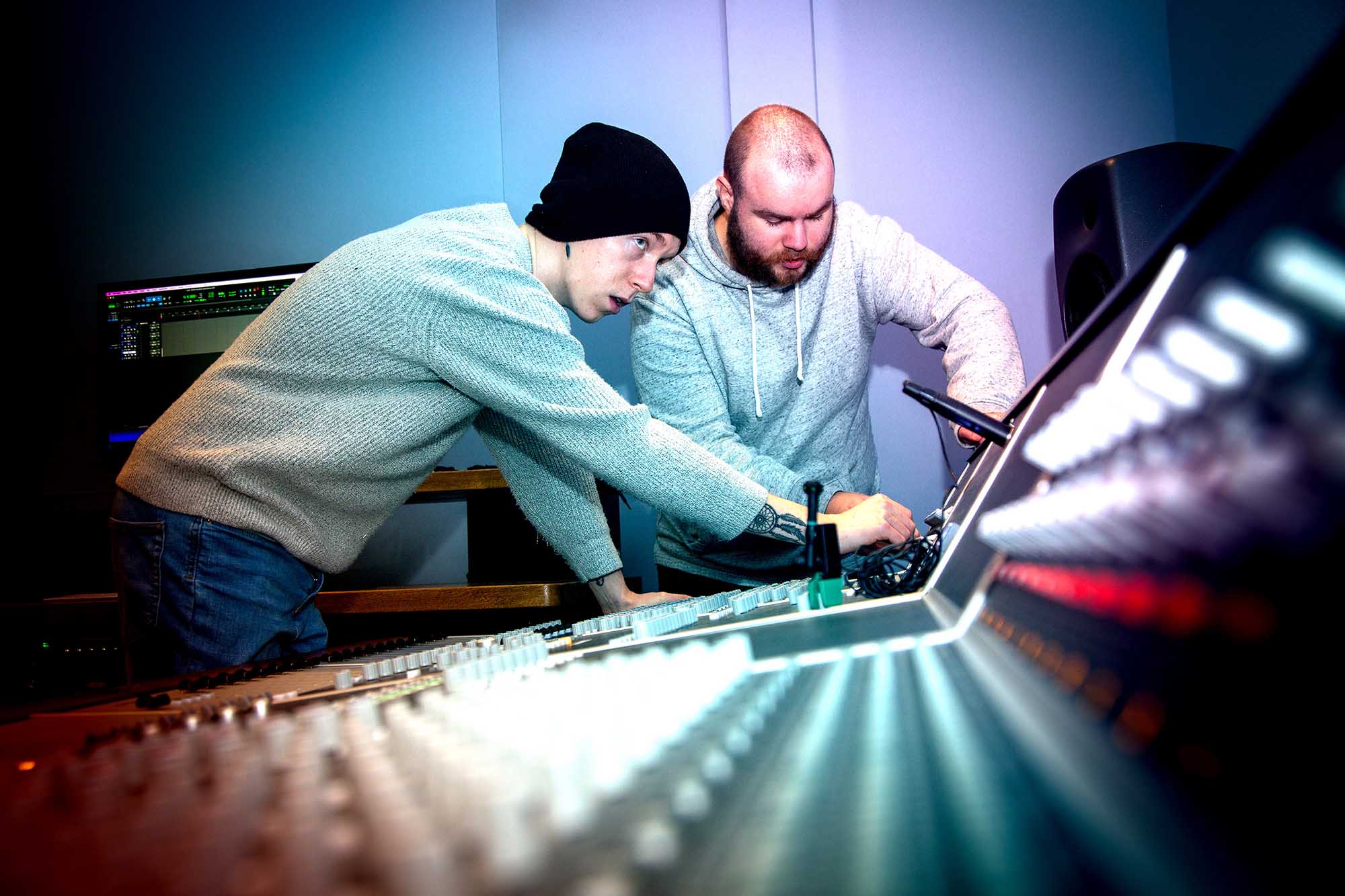Sound Engineering and Production (Sound Production)
Level 5 QQI Award - Sound Production 5M2149
Duration
This is a Full time one year course, which runs from September to May. Exact details of the timetable will be given out to students during the induction process prior to class commencement in September.
Overview
This course provides a combination of practical and theoretical tuition in all aspects of sound engineering and music production and is delivered by staff who are working producers, musicians and DJs.
There are 3 streams: this one is especially suited for students who want to focus on music production or sound engineering.
Gain all the knowledge and skills you need to progress in the industry. Learn to record musicians and performers in our industry-standard recording studio, and create mixes and edits in our all iMac digital sound production facility, fully equipped with state-of-the-art equipment. This course features a high level of training in a wide range of industry-standard music production software including Pro Tools, Ableton Live and Adobe Audition. You will also gain practical experience setting up and running sound for live performances, radio and podcast production and location recording.
Entry Requirements
One of the following:
- Leaving Certificate (LC Established, LCVP, LCA) or equivalent
- A Full Level 4 QQI Award (or equivalent)
- For Mature applicants (aged 21 or over) - appropriate experience will be considered in lieu of formal qualifications. Note: Mature applicants may be entitled to VTOS funding. For details about VTOS, please contact the college.
- Applicants whose first language is not English require level B1 competency on the CEFR language framework. Applicants may be required to undergo English language testing to establish their language competency.
Course Modules
- Sound Engineering and Production
- Music Technology
- Ethnomusicology
- Event Production
- Radio Programme Production
- Desktop Multimedia Audio Production
- Work Experience
- Communications
Module Information
Sound Engineering/Sound Production
Level 5 QQI Award: Sound Production (5M2149)
Course Content (Module Names and Codes)
Sound Engineering and Production 5N1900
Gain the knowledge, skill and competence to work independently and under supervision in a typical recording studio environment. Learn how to work effectively in a live sound or location recording scenario.
Assessment: Skills Demonstration (60%), Examination - Theory (40%).
Music Technology 5N1640
Learn how to make music using a range of different methods and technologies. Using a DAW (Digital Audio Workstation) learners will develop the practical skills and theoretical knowledge associated with sequencing and audio recording. They will also develop the skills required to create musical compositions using modern technology.
Assessments: Project (60%), Examination - Theory (40%.
Ethnomusicology 5N1443
The purpose of this module is to equip the learner with the knowledge, skill and competence to appreciate the musical diversity of ethnic groups, enhance their awareness of the socio-cultural and historical growth of music and use field studies as a form of research in ethnomusicology.
Assessment: Assignment (50%), Project (50%).
Radio Programme Production 5N1379
Radio Programme Production: Working individually and in teams, you will produce a range of items for radio and podcasting formats including jingles, scripted voice recordings, studio interviews and group discussions. Instruction in audio production methods, from script consultations to studio operational skills, is delivered both one-to-one and in small groups. All assignment items are recorded in fully digital industry-standard audio recording studios.
Note: for the duration of the course, students will have free licenced access to Adobe Audition recording and editing software to use in the college or at home.
Assessment: Assignment (30%); Portfolio / Collection of Work (50%); Theory Exam (20%).
Event Production 5N1374
This module equips the learner with the knowledge and skills necessary to plan and stage an event covering areas such as understanding a client brief, roles of responsibility, scheduling, risk assessment, budgeting, logistics, promotions and communicating effectively as part of a team. Having completed this module the learner will be able to project manage events of different scales and types including live music concerts.
Assessment: Project (40%), Skills Demonstration (30%), Learner Record (30%).
Desktop Multimedia Audio Production 5N2148
This module aims to equip learners with the skills and knowledge required to work in an electronic music environment using modern technology. The practical aspects of the program will be delivered using Ableton Live software along with a range of hardware MIDI controllers. Learn to program beats, control synthesizers, edit audio and manipulate samples within the software.
Assessment: Project (40%), Skills Demonstration (30%), Examination - Theory (30%).
Communications 5N0690
Gain the relevant knowledge, skill and competence to communicate verbally and nonverbally in standard everyday tasks and work-related situations, operating independently and under general direction.
Assessment: Portfolio/Collection of Work (50%), Skills Demonstration (50%).
Work Experience 5N1356
Prepare for a work placement under supervision for a limited time. This comprises a skills audit, achievement audit, rights and responsibilities, vocational area study, an evaluation of work placement and future career roles. A Work Placement of 10 working days must be arranged.
Assessment: Portfolio/Collection of Work (60%), Skills Demonstration (40%).
Certification
- Level 5 Award Sound Production 5M2149
Special Features
As well as learning about in-studio recording, students will get the opportunity to gain invaluable experience organising gigs, setting up sound facilities for live performances and doing on location recording.
This course is supported by FIT, which offers students the opportunity to acquire essential skills to gain employment. Students are given training in job interview techniques and CV preparation.
Specialist resources include:
- Industry-Standard Sound Production Studio with Audient ASP8024HE Heritage Edition console, full set of instruments and assorted hardware effects.
- iMac Digital Sound Studio. Our new iMac Lab replicates real-life industry experience
- DJ Room equipped with the most up to date industry-standard Pioneer DJ equipment including CDJ 3000s and DJM A9, as well as XDJs, and vinyl turntables.
- Digital Radio Studio with Adobe Audition
- Internal live venue with stage and sound booth
- Free full suite of Adobe Creative Cloud Software for all students on this course for one year to facilitate assessment work.
All DFEi students are provided with an M365 account, which gives them access to the tools and resources needed to deliver assessment work while attending their course. M365 Apps include Word, PowerPoint, Excel, outlook and OneDrive.
Work Experience
Students will be required to undertake a period of work placement in an organisation connected to their vocational area during the academic year. Work Experience is mandatory for all of our full-time Level 5 courses. Students are required to source their own work placement but will be assisted in this by the work experience teacher. The work placement is usually for a period of 10 days or a minimum of 60 hours. Students usually find the work experience element of the course to be invaluable and should bear in mind that a successful work placement can sometimes lead to further opportunities.
Additional Information
Assessment
Assessment techniques will be used to assess the knowledge and skills that students will have achieved on successful completion of modules:
- Student Record
- Portfolio/Collection of Work
- Assignments
- Examination - Written or Practical
- Project
- Skills Demonstration
All assignments are submitted electronically. Therefore all students need access to a device such as a computer/laptop.
A full major award is granted on passing the relevant eight components. On successful completion of each component, you will be awarded a pass, a merit or a distinction grade. See www.qqi.ie for more details
Progression Opportunities
DFEi: Graduates may progress to the QQI Advanced Certificate in Sound Engineering/Sound Production Level 6 or the QQI Advanced Certificate in TV and Digital Film Production Level 6 at DFEi.
Elsewhere: Graduates are eligible to apply through the CAO and/or the Higher Education Links Scheme for entry to year one of a range of higher certificate and degree programmes, at Universities, Institutes of Technology and Technological Universities using their full QQI Level 5 major award. Places are not guaranteed in these Institutes and are subject to students meeting certain criteria. It is the students' responsibility to consult with the relevant HEI for information on the admissions process and any specific entry requirements. Students may also refer to the individual HEI prospectus or may also refer to the QQI FET section of the CAO website. www.cao.ie
Examples of CAO progression opportunities are listed below.
Progression Examples
BA Arts (DN520)
BA Humanities (DN530)
University College Dublin - www.ucd.ie
BA Creative Music Production (DL838) There is an option to do QQI Level 5 Mathematics module if a student does not have the LCE Mathematics requirement.
IADT, Dún Laoghaire - www.iadt.ie
BA Commercial Modern Music (BIMM assessment/audition) (TU961)
Bachelor of Music (audition) (TU963)
BA Media Production and Digital Arts (TU982)
BA Creative Digital Media (TU981)
Technological University Dublin - www.tud.ie
BA Music (audition) (DK860)
BA Audio and Music Production (DK865)
Dundalk Institute of Technology - www.dkit.ie
BA in Music Technology (MH101). There is an option to do QQI Level 5 Mathematics module if a student does not have the LCE Mathematics requirement.
BA Arts (MH101)
BA Media Studies (MH109)
BA Psychology (MH106)
Maynooth University - www.nuimaynooth.ie
Higher Certificate Music and Instrument Technology (US600) Level 6
BEng Music and Sound Engineering (US704) Level 7
Technological University of the Shannon (Athlone Campus) - www.tus.ie
BSc Music Production and Technology (US703) Level 7
BSc Music Production and Technology (US808) Level 8
Technological University of the Shannon (Limerick Campus) - www.tus.ie
Career Paths
Career prospects would include: Sound Engineer, Music Producer, Live Performer, Session Musician, Live Sound Engineer, Sound Designer, DJ, Artist Manager, A&R, Label Owner, Promotor, Music Publicist, Studio Manager, Radio Producer, Podcast Producer, Mastering Engineer, Singer/Songwriter.
Gallery

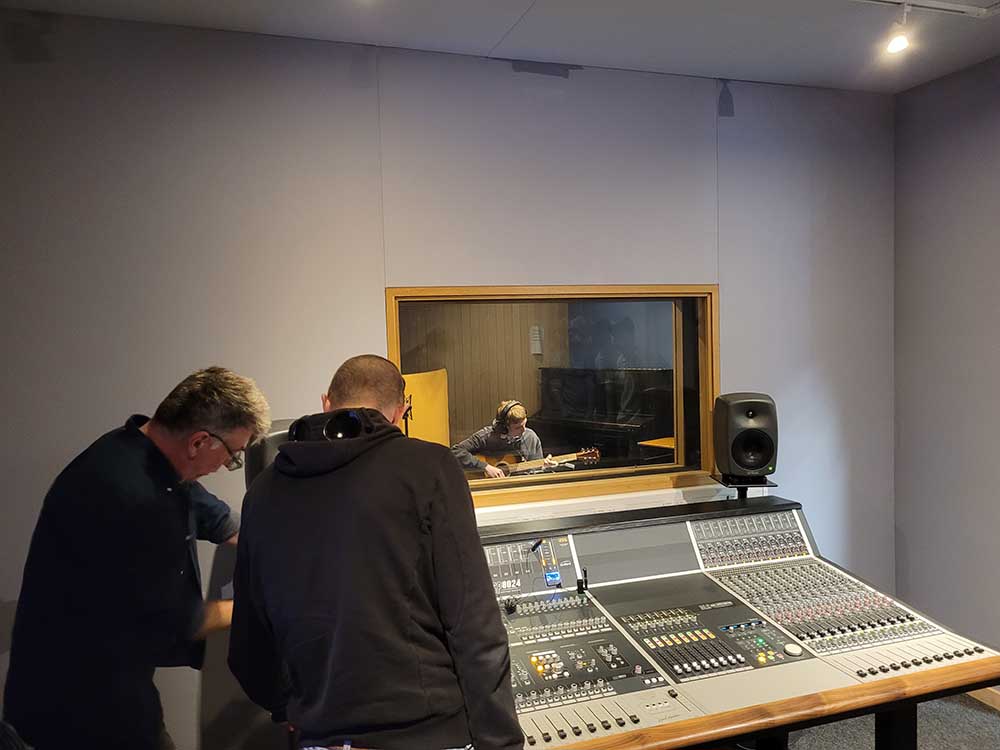


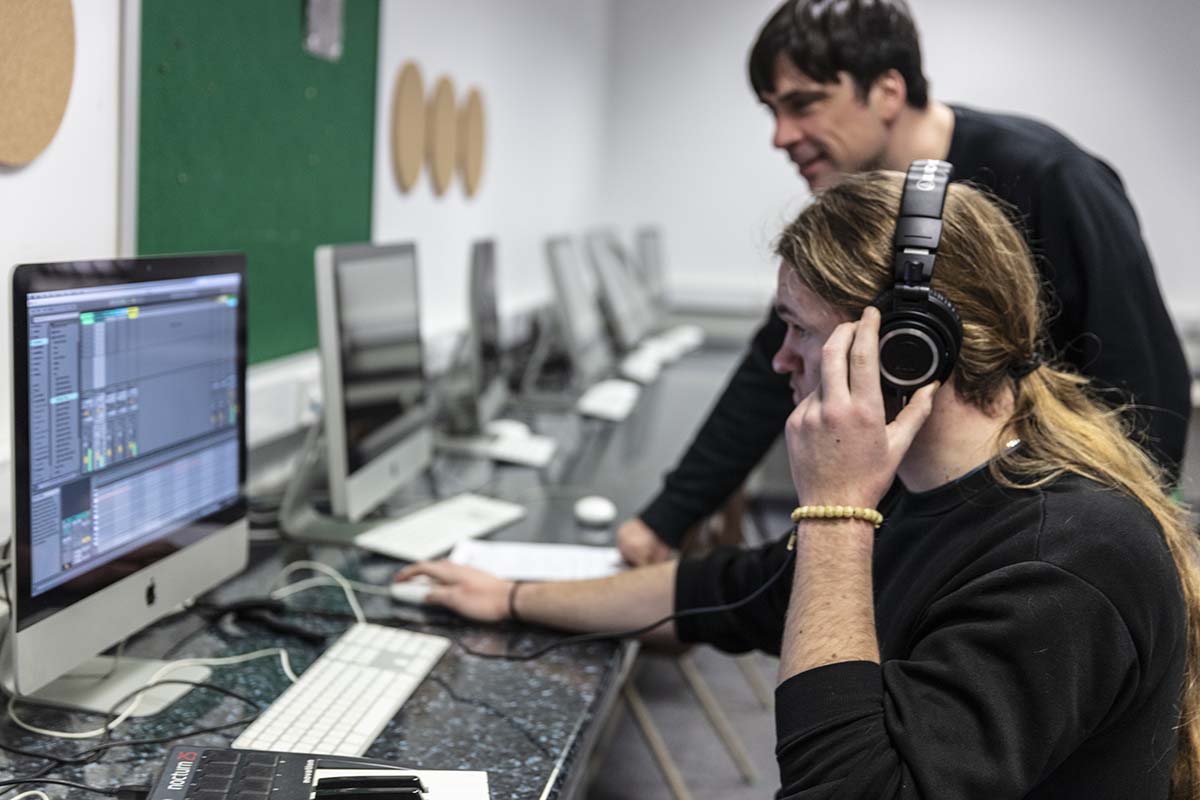
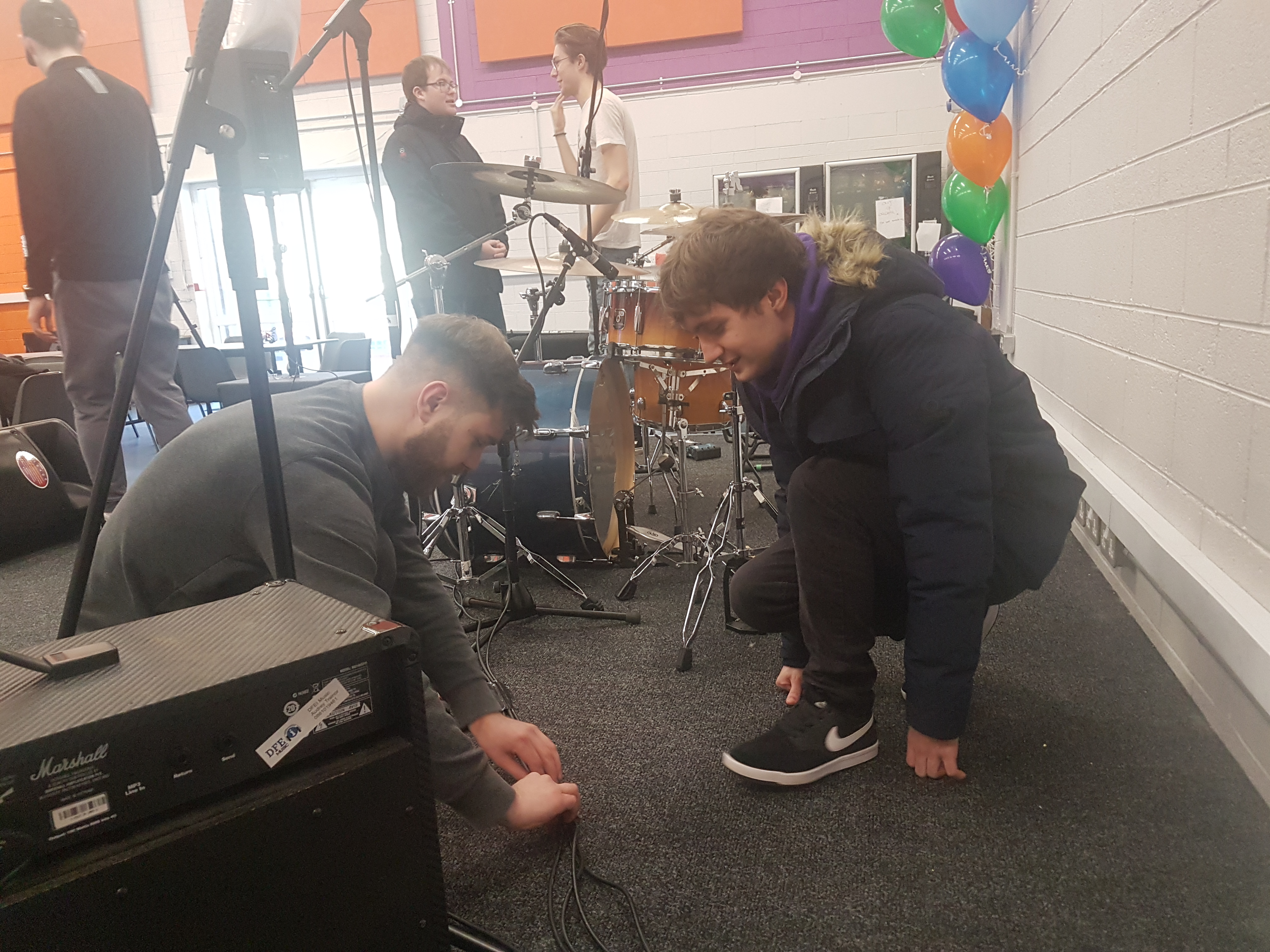
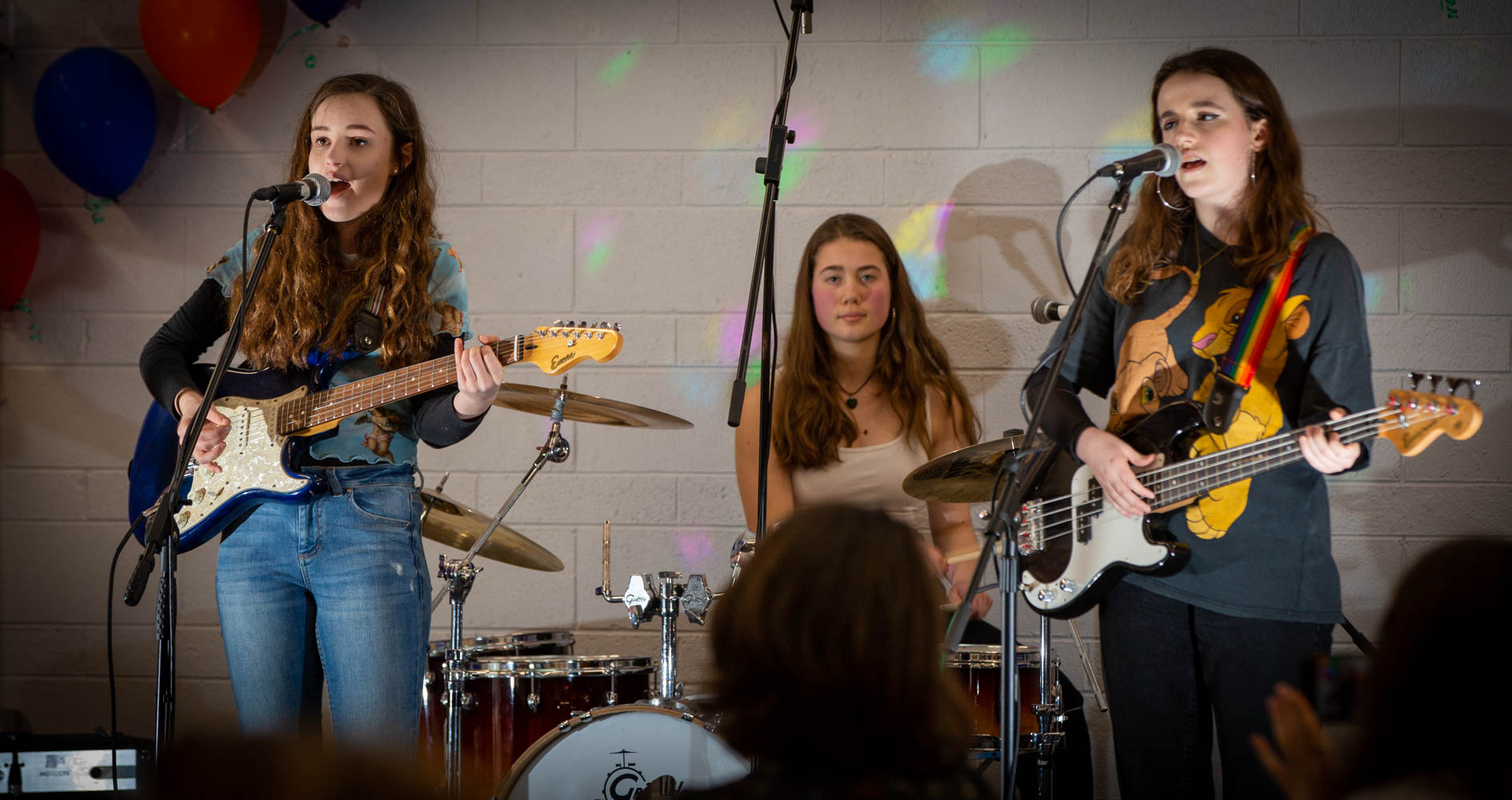


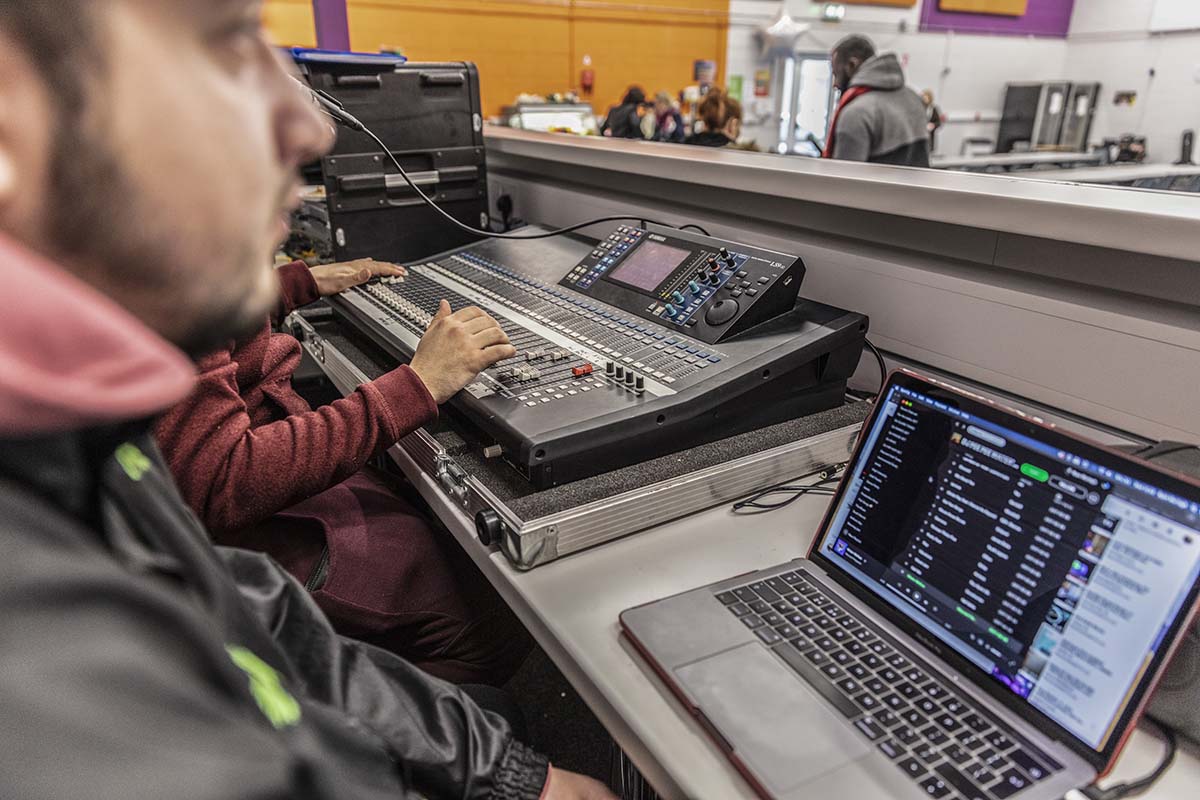



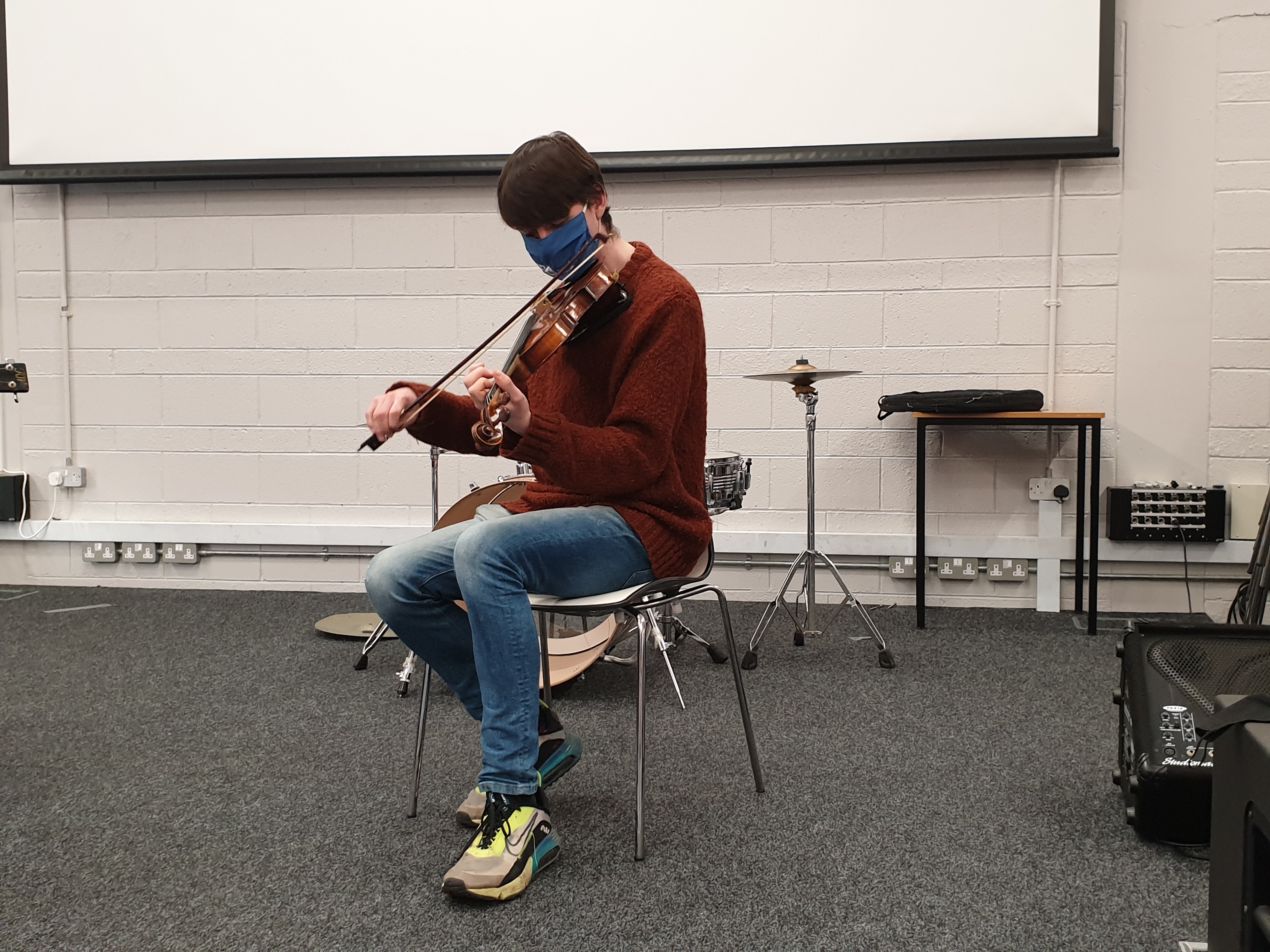


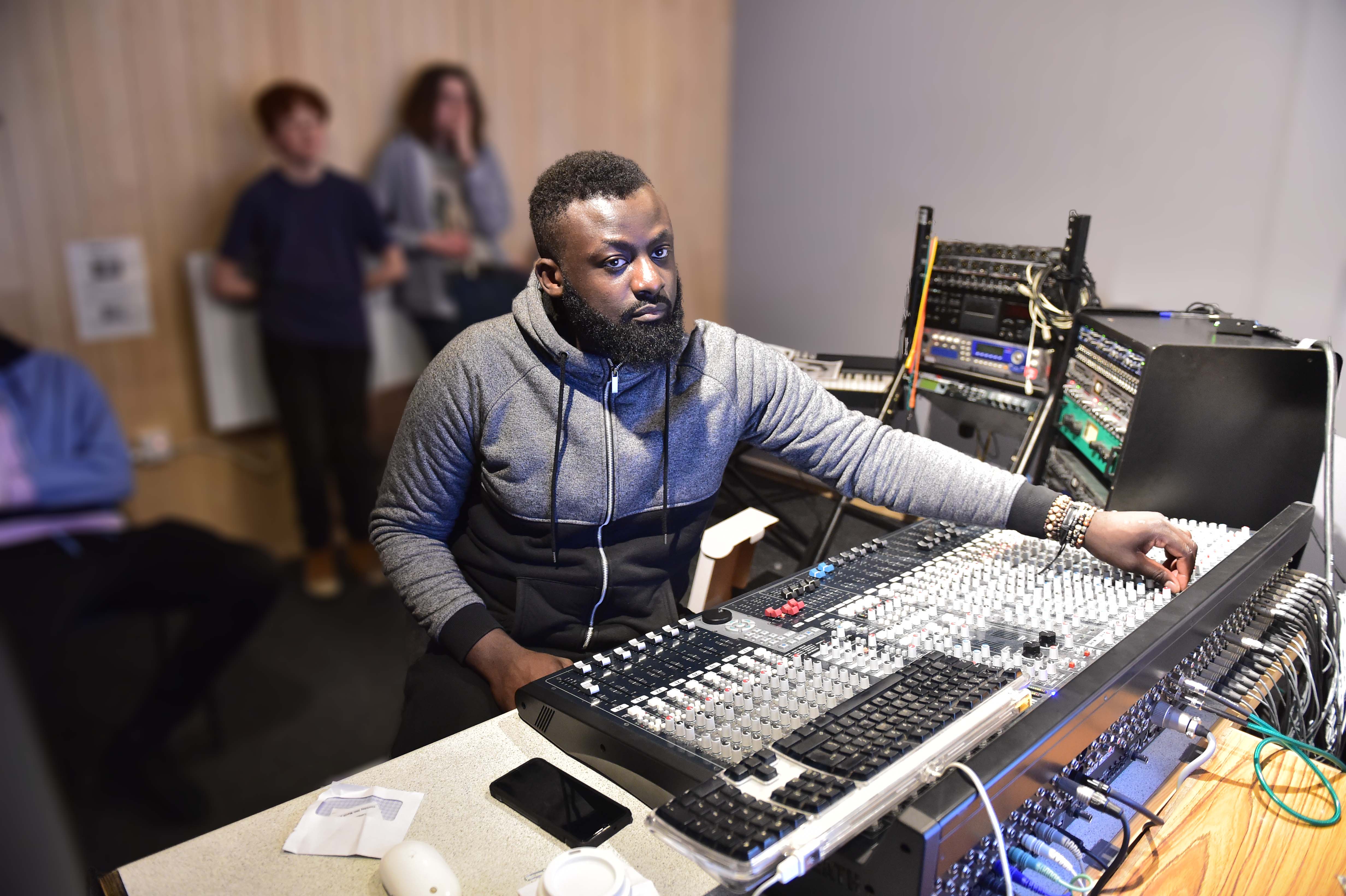







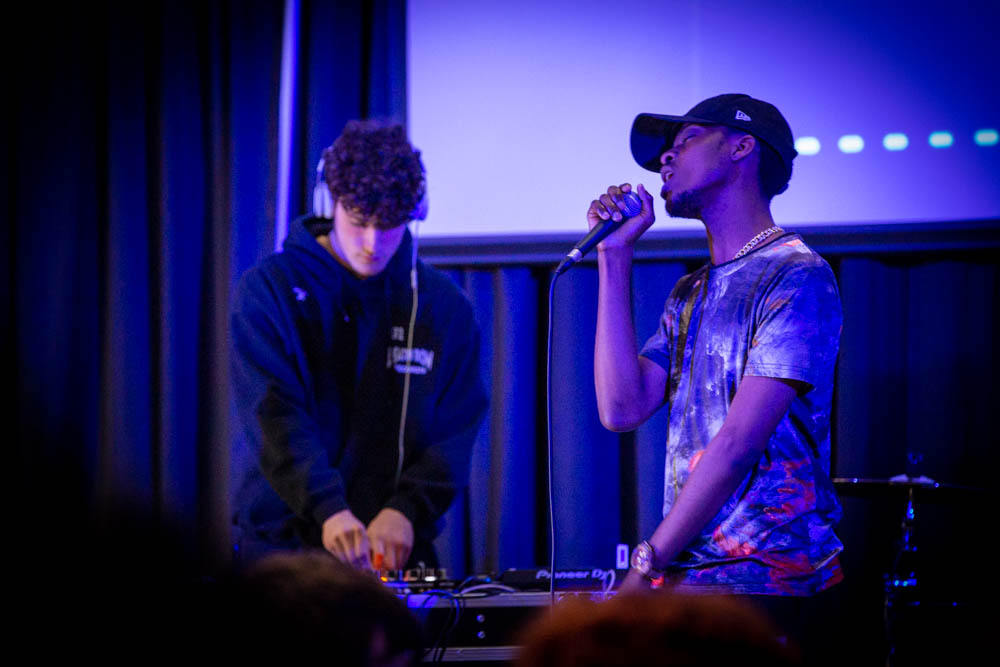





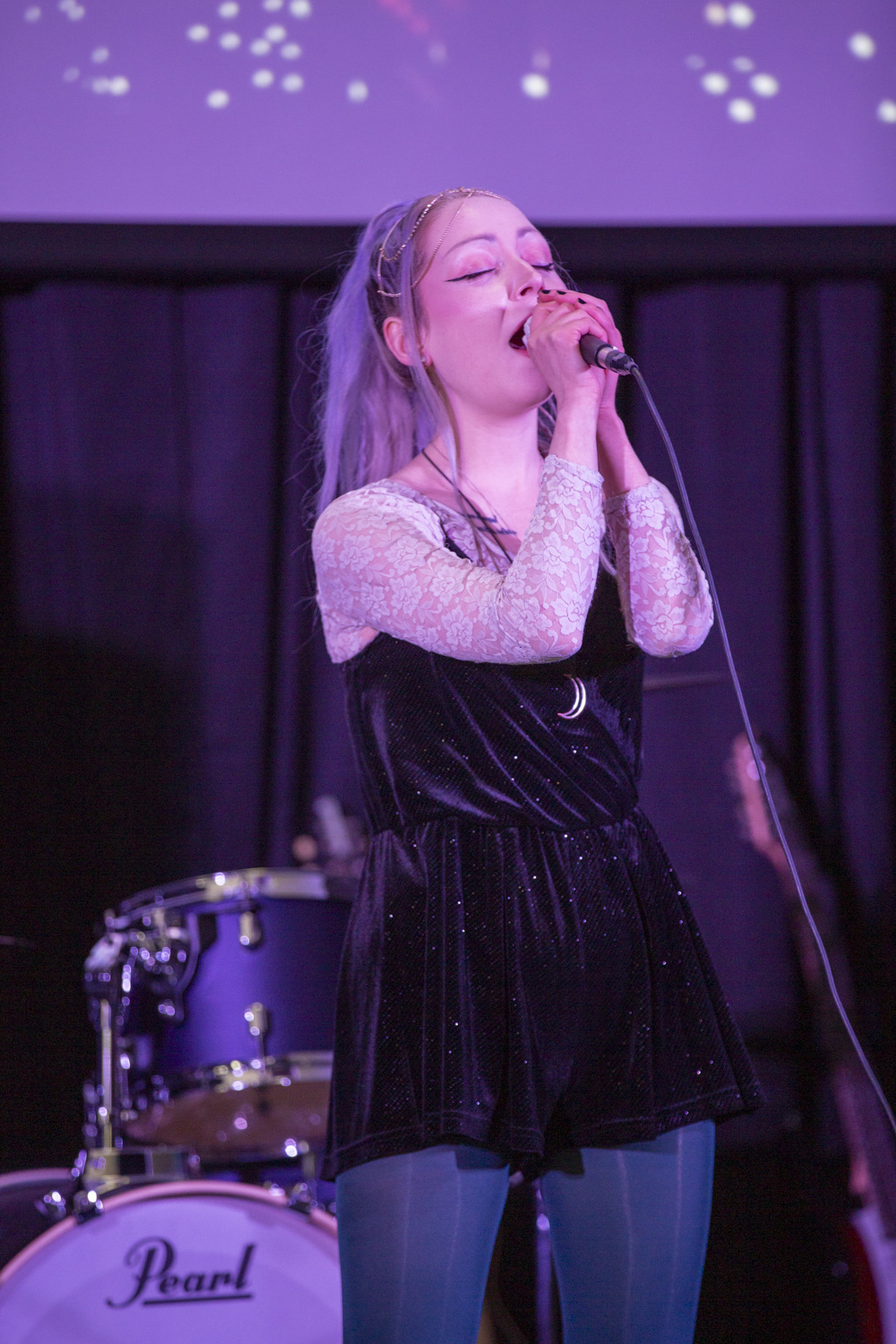
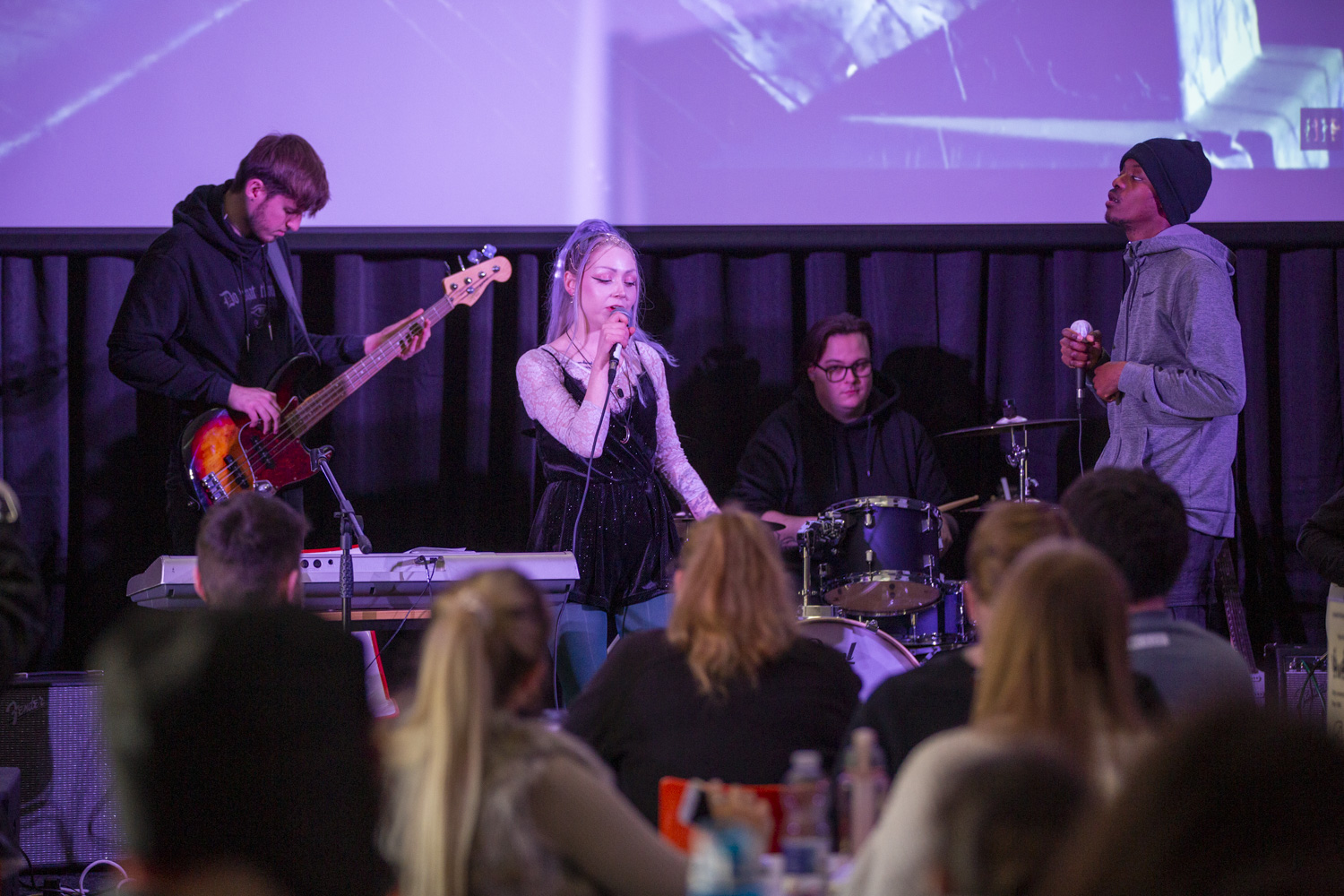

Thank You
we will be in touch shortly
 “
“
Richard Gill
2021 Graduate of Sound Engineering
Currently working in Conferences Services as an Audio/Video Technician
My teachers were excellent and I found it very easy to learn from them. Their passion for music and audio in general was infectious…
Read More ”Richard Gill
2021 Graduate of Sound Engineering
Currently working in Conferences Services as an Audio/Video Technician
My teachers were excellent and I found it very easy to learn from them. Their passion for music and audio in general was infectious and really pushed me to do my best. The course gave me a well-rounded skill set to work in the music industry. I wouldn’t be in my current job had I not done the course.
I'm currently an Audio/Video technician with Conference Services. https://www.conferenceservices.ie
I am thoroughly enjoying my new career path and I owe a lot of that to DFEi for providing the work experience and facilities like the recording studio.

